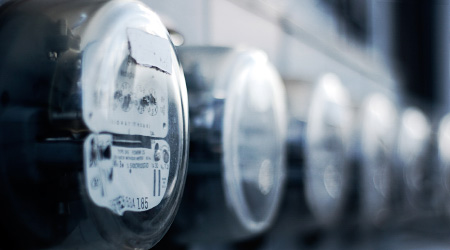How To Have Lower Energy Bills

Weather seems to be getting more extreme resulting in hotter summers and colder winters which in turn drives up energy bills. Even then, utilities seem to be high all year round as families purchase more and more electronics and spend more time connected to the Internet and streaming entertainment. Fortunately, there are still a number of ways to lower energy bills and have more money in the bank which can be put to better use building an emergency fund, saving for retirement or doing more things with the family.
The Kitchen
The two largest energy wasters in the kitchen are the dishwasher and refrigerator. Not only do they use significant electricity to operate, especially the refrigerator, but the dishwasher also uses water which can be wasted if not used properly. Make sure the refrigerator is full even if what is filling it isn't groceries. Empty space inside a refrigerator is the worst thing to have as the only thing staying cool is air. If it isn't realistic to downsize to a smaller refrigerator then try putting one gallon jugs of water in the lower half to fill empty space. Not only does this minimize the amount of space needed to cool but cold water tends to retain a lower temperature longer.
While dishwashers are more efficient now than ever they still run best when running a full load. Running partial loads only waste electricity and water and are not an efficient use of limited resources. It has also been proven that using a dishwasher is significantly more efficient than washing dishes by hand. When filling a dishwasher make sure items are not blocking each other since it may require additional washings and defeat the overall purpose of saving water.
The Laundry Room
Clothes washers and dryers are used frequently especially in households with many family members. A few steps can be taken to reduce their use while also using them more effectively. If you haven't already, educate your children that you can wear clothes more than once without washing them. This should cut down on the number of loads being washed over the course of a month. As with the dishwasher, make sure you are washing full loads and avoid partial loads as much as possible.
Instead of putting everything into a close dryer try line drying whenever you can especially in the summer. Not only does this minimize wear and tear on fabric leading to close lasting longer but it also reduces electricity usage. If clothes are too stiff when line drying, try using the clothes dryer with a fabric softener for a few minutes before hanging them outside.
The Bathroom
Items in the bathroom use an excessive amount water especially if certain members of the family like taking long showers or using the toilet as a waste bin. Installing low flow shower heads and toilets can cut water usage by as much as 30%. This is especially true if combined with less frequent use by taking shorter showers and turning off the water faucet when brushing teeth. If you have older toilets, meaning not low flow, then try placing a few bricks in the water tank to displace the amount of water needed when flushing.
The Living Room
Big-screen televisions and console video game systems can use a significant amount of electricity especially if they are on for hours at a time. More electronics however are qualifying for the federal government's Energy Star program. This means they meet federally mandated low energy usage requirements and are recommended by the Department of Energy. Purchasing an LED TV and turning off all electronics when not in use is a great step to cut electricity usage.
Incandescent light bulbs are also being phased out in favor of compact fluorescent and LED based light bulbs. These types of light bulbs use more energy-efficient technology and have advanced to the point where the difference between the two is often indistinguishable. While more expensive initially they pay for themselves over time, especially in the case of LEDs which can last upwards of 30 years or more.







